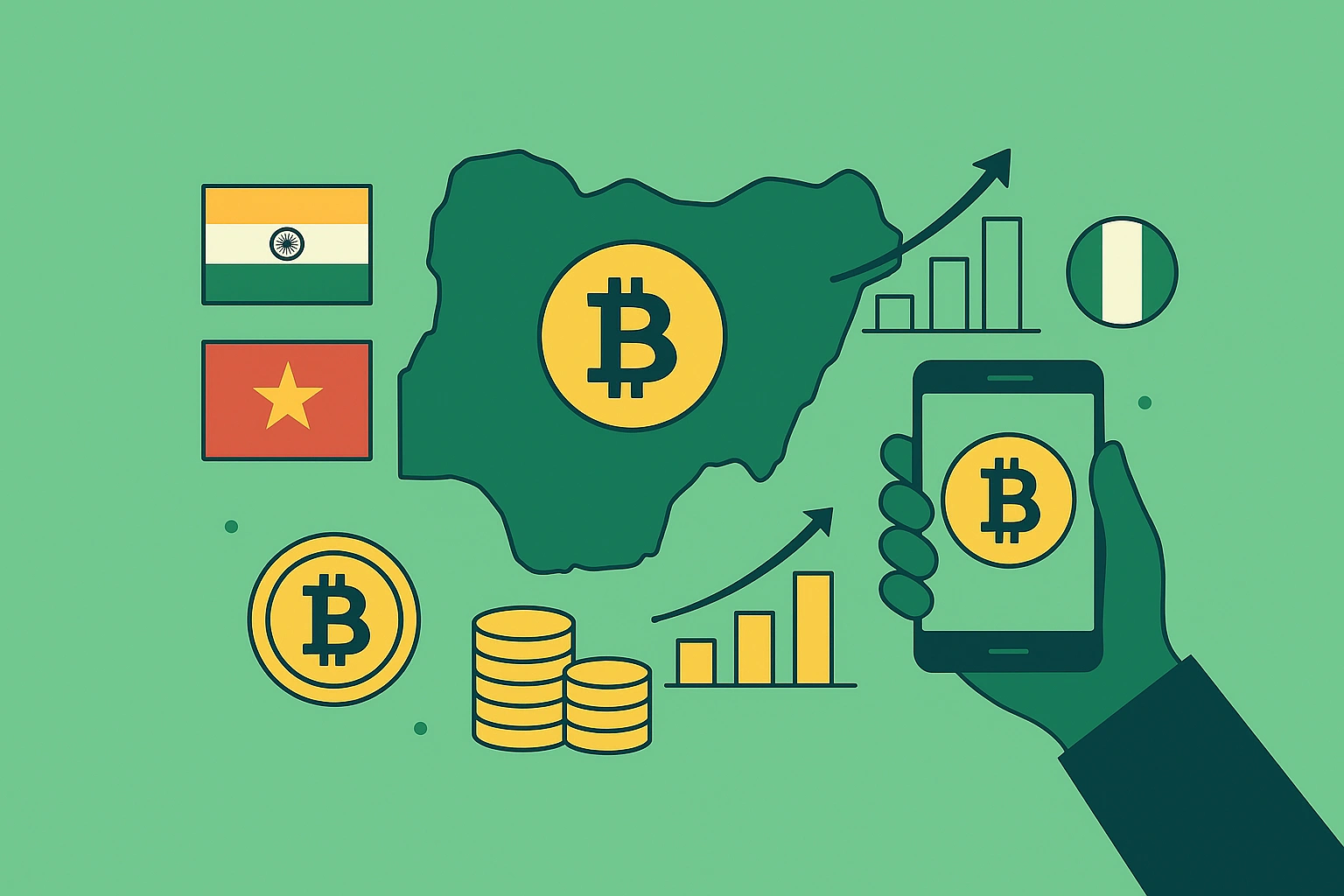Nigeria has emerged as the world’s third-largest cryptocurrency adopter, trailing only India and Vietnam, according to recent data revealed by securities regulators.
Dr. Emomotimi Agama, Director-General of Nigeria’s Securities and Exchange Commission (SEC), disclosed this milestone during the West Africa Compliance Summit in Praia, Cape Verde. The announcement highlights West Africa’s rapid transformation into a global hotspot for virtual asset adoption, driven by the region’s young, tech-savvy population.
Record-Breaking Transaction Volumes
The numbers paint a striking picture of Nigeria’s crypto boom. In 2024 alone, cryptocurrency transactions in Nigeria exceeded $56 billion, representing a significant portion of the country’s financial activity. This surge reflects broader trends across West Africa, where over $20 billion in remittances flowed into the region last year.
“Over $20 billion in remittances flowed into West Africa in 2024, yet traditional channels charged up to 10% in fees,” Dr. Agama explained during his presentation. “Cryptocurrencies, particularly stablecoins like USDT and USDC, now offer faster, cheaper alternatives.”
The adoption surge stems from practical economic pressures. Nigeria’s naira volatility, Ghana’s cedi depreciation, and widespread foreign exchange shortages have pushed citizens toward what experts term “crypto-dollarisation.” Young professionals increasingly demand salaries in stablecoins, while businesses leverage platforms like Binance Pay for cross-border trade.
Demographic Advantage Fuels Growth
West Africa’s demographic profile strongly supports crypto adoption. With over 60% of the region’s population under 25, mobile-first cryptocurrency solutions have found fertile ground. This youthful demographic, comfortable with digital technology, has embraced virtual assets as alternatives to traditional banking systems that often lack adequate infrastructure or charge prohibitive fees.
“Today, Nigeria ranks as the third-largest crypto adopter globally, after India and Vietnam,” Dr. Agama confirmed, underscoring the country’s position in the global digital asset landscape.
Regulatory Challenges and Criminal Activity
However, explosive growth has attracted negative attention. Dr. Agama warned that the crypto boom has also drawn “predators” seeking to exploit unsuspecting investors. High-profile scandals have wiped out millions in investor funds, while decentralized finance (DeFi) “rug pulls” continue defrauding users.
The Inter-Governmental Action Group against Money Laundering in West Africa (GIABA) reported $2.1 billion in suspicious cryptocurrency-linked transactions across West Africa in 2024. Terror groups have exploited privacy coins to evade detection, while artificial market crashes and unregistered exchanges absconding with funds have resulted in billions in losses.
“Regulation is not optional but an imperative,” Dr. Agama emphasized, highlighting the urgent need for comprehensive oversight frameworks.
Nigeria’s Regulatory Evolution
Nigeria’s regulatory journey reflects the broader challenges facing emerging crypto markets. In 2021, the Central Bank banned banks from servicing cryptocurrency firms, pushing activity underground. The SEC classified crypto as securities in 2022 but lacked sufficient enforcement mechanisms.
The landscape changed dramatically with the Investment and Securities Act 2025, which formally recognized cryptocurrencies, stablecoins, utility tokens, and NFTs as digital assets. The legislation mandates that exchanges, wallets, and DeFi platforms obtain SEC licensing.
“The Investment and Securities Act 2025 fundamentally changed the landscape,” Dr. Agama noted, describing the comprehensive legal framework now governing digital assets in Nigeria.
Regional Coordination Efforts
Looking ahead, Nigerian regulators advocate for harmonized frameworks across West Africa. Dr. Agama proposed a Unified Virtual Asset Service Provider (VASP) Licensing System under the Economic Community of West African States (ECOWAS), arguing that “financial crimes know no borders.”
Nigeria plans to deploy artificial intelligence surveillance tools for blockchain analytics to trace illicit activity. The SEC has also intensified its Ponzi Awareness Campaign following recent high-profile fraud cases, including the CBEX Ponzi scheme collapse that defrauded thousands of investors.
Market Outlook
As West Africa continues its digital transformation, the region stands at a crossroads between innovation and regulation. While cryptocurrency adoption offers solutions to traditional banking limitations and cross-border payment challenges, regulators emphasize the critical importance of consumer protection and market integrity.
The success of Nigeria’s evolving regulatory framework may serve as a model for other West African nations grappling with similar challenges in the rapidly expanding digital asset ecosystem.
